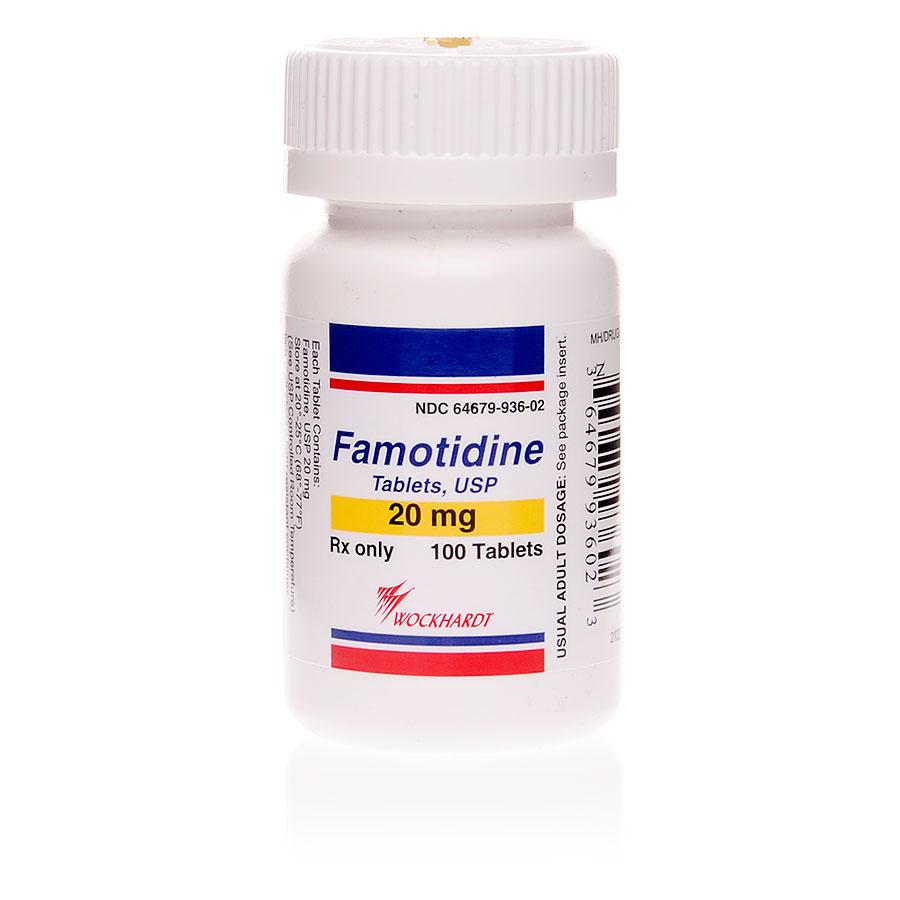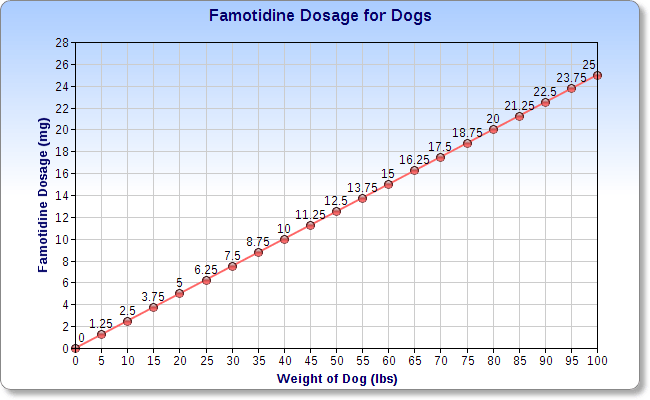You can give your 50 lb dog 10-20 mg of Pepcid every 12-24 hours, but consult your vet first. It’s important to note that the dosage may vary based on your dog’s specific condition and needs, so professional advice is crucial.
Maintaining your pet’s health is essential, and knowing the right medication dosage is a key part of responsible pet ownership. As a loving dog owner, it’s important to be informed and educated about their care. Always consult your veterinarian before administering any medication, as they can provide personalized guidance based on your dog’s health history and individual needs.
With the proper advice and care, you can ensure your furry friend stays healthy and comfortable.

Credit: m.facebook.com
Pepcid For Dogs
If your 50 lb dog is suffering from gastrointestinal issues, such as acid reflux or stomach ulcers, your veterinarian may recommend Pepcid as a treatment option. Pepcid, also known by its generic name famotidine, is an antacid medication that helps reduce the production of stomach acid, providing relief for your furry friend.
Dosage Guidelines
When it comes to giving Pepcid to your 50 lb dog, it is important to follow the proper dosage guidelines. The recommended dosage for dogs is 0.22 mg to 0.44 mg per pound of body weight every 12 to 24 hours. In the case of a 50 lb dog, this would mean a dose of approximately 11 mg to 22 mg.
It is crucial to consult your veterinarian before administering any medication to your dog. They will be able to determine the exact dosage based on your dog’s specific needs and medical conditions. Your vet may also advise splitting the dose into two smaller amounts to be given twice a day.
Safety Considerations
While Pepcid is generally safe for dogs, there are a few important safety considerations to keep in mind. It is essential to never exceed the recommended dosage, as an overdose can potentially be harmful to your dog’s health.
If your dog experiences any adverse side effects after taking Pepcid, such as vomiting, diarrhea, or loss of appetite, contact your veterinarian immediately. They will be able to provide further guidance and may recommend adjusting the dosage or exploring alternative treatment options.
Additionally, it is important to note that Pepcid should only be given to dogs under the supervision and guidance of a veterinarian. Self-medicating or giving your dog medication intended for humans can be dangerous and may have unintended consequences.
Always store Pepcid in a safe location away from your dog’s reach. Keep the medication out of direct sunlight and check the expiration date before administering it to your pet.
In conclusion, Pepcid can be an effective solution for managing gastrointestinal issues in your 50 lb dog. By following the proper dosage guidelines and considering the safety precautions, you can help alleviate your dog’s discomfort and promote their overall well-being.
Determining The Right Dosage
When it comes to giving Pepcid to your 50 lb dog, determining the right dosage is crucial for their safety and well-being. It’s important to consider their weight and consult a veterinarian to ensure the correct amount is administered.
Consulting A Veterinarian
Before administering any medication to your dog, it’s always best to consult a veterinarian. They can provide personalized guidance based on your dog’s health history and specific needs. A vet can determine if Pepcid is the right choice for your dog and recommend an appropriate dosage.
Weight-based Dosage
When determining the dosage of Pepcid for a 50 lb dog, it is essential to calculate the proper amount based on their weight. The general guideline is to administer 0.25 mg to 0.5 mg per pound of body weight every 12 to 24 hours. Therefore, for a 50 lb dog, the recommended dosage would be 10 to 20 mg every 12 to 24 hours.
Administering Pepcid To Your Dog
Administering Pepcid to your dog is an important decision that should be made under the guidance of a veterinarian. Pepcid, also known as famotidine, is a medication commonly used to treat gastric acid-related conditions in dogs, such as acid reflux, gastritis, and stomach ulcers. However, it’s crucial to follow specific guidelines to ensure the safety and well-being of your furry friend.
Forms Of Pepcid For Dogs
When administering Pepcid to your 50 lb dog, it’s essential to consider the various forms in which the medication is available. Pepcid is commonly available in tablet and liquid forms. The tablets are typically available in 10 mg, 20 mg, and 40 mg strengths, whereas the liquid formulation can be more convenient for dogs who struggle with swallowing pills. Your veterinarian will provide a specific recommendation based on your dog’s individual needs.
Timing And Frequency
The timing and frequency of Pepcid administration for your dog are crucial aspects of their treatment plan. Pepcid is typically given to dogs 30 minutes before their meals, as this allows the medication to be most effective at reducing stomach acid. The standard dosage for dogs is 0.25 mg to 0.5 mg per pound, administered every 12 to 24 hours. However, it’s essential to comply with your veterinarian’s instructions regarding the specific timing and frequency based on your dog’s condition.

Credit: www.petcarerx.com
Possible Side Effects
Potential side effects of giving too much Pepcid to a 50 lb dog may include drowsiness, diarrhea, vomiting, or loss of appetite. It is important to consult with a veterinarian before administering any medication to your pet.
Common Side Effects
While Pepcid can be a helpful medication for managing certain gastrointestinal issues in dogs, it’s important to be aware of potential side effects.
The common side effects that may be experienced after giving Pepcid to your 50 lb dog include:
- Upset stomach
- Loss of appetite
- Vomiting
- Diarrhea
These side effects are usually mild and temporary, and they should resolve on their own without causing any significant harm to your furry friend.
Severe Reactions
While uncommon, severe reactions to Pepcid can occur. If you notice any of the following symptoms in your dog, it is important to seek immediate veterinary care:
- Difficulty breathing or shortness of breath
- Swelling in the face, lips, tongue, or throat
- Hives or rash
- Weakness or collapse
- Irregular heartbeat
- Seizures
If your dog experiences any of these severe reactions, it could indicate an allergic reaction or a more serious underlying issue. Contact your vet as soon as possible for appropriate guidance and treatment.
Remember, it’s crucial to monitor your dog closely and report any adverse effects to your veterinarian. While the benefits of Pepcid can outweigh the risks for most dogs, every pet may react differently to medications.
Alternative Treatment Options
When it comes to treating your 50 lb dog, there are alternative options to consider besides Pepcid. These treatments, ranging from natural remedies to prescription medications, can help alleviate your dog’s symptoms and provide them with the relief they need. In this article, we will explore two potential avenues for managing your dog’s condition: natural remedies and prescription medications.
Natural Remedies
If you prefer a more holistic approach, natural remedies can be a viable option for your dog. These treatments often provide relief without the potential side effects associated with medications.
- Probiotics: Adding probiotics to your dog’s diet can promote a healthy digestive system and help to reduce acid reflux symptoms. Look for brands specifically formulated for dogs, with strains such as Lactobacillus and Bifidobacterium.
- Marshmallow Root: Marshmallow root has been used for centuries to soothe the digestive tract. You can find it in supplement form or as a tea that can be added to your dog’s food.
- Slippery Elm: Similar to marshmallow root, slippery elm can help calm and protect your dog’s irritated esophagus. It is available as a supplement and can be mixed with their food for easy administration.
- Dietary Changes: Modifying your dog’s diet can also help manage their acid reflux. Avoiding spicy, fatty, or overly processed foods can reduce the likelihood of triggering symptoms. Opting for smaller, more frequent meals instead of large ones can also alleviate discomfort.
Prescription Medications
If natural remedies are not providing the desired results, your veterinarian may prescribe medication to address your dog’s acid reflux. Prescription medications can help reduce stomach acid production and protect the esophagus from irritation.
| Common Prescription Medications | Usage | Possible Side Effects |
|---|---|---|
| Omeprazole | To reduce stomach acid production | Headaches, diarrhea, abdominal pain |
| Ranitidine | To block acid production | Decreased appetite, dizziness, confusion |
| Famotidine | To inhibit stomach acid | Constipation, dry mouth, fatigue |
It is crucial to follow your veterinarian’s instructions carefully and monitor your dog for any adverse reactions. Be sure to notify them of any changes in behavior or health while your dog is on medication.
Before considering any alternative treatment options, it’s vital to consult with your veterinarian. They can evaluate your dog’s condition and provide appropriate guidance based on their specific needs. Whether you choose natural remedies or prescription medication, the ultimate goal is to improve your dog’s quality of life and reduce their discomfort.

Credit: canigivemydog.com
Frequently Asked Questions For How Much Pepcid Can I Give My 50 Lb Dog
How Much Pepcid Can I Give My 50 Lb Dog?
Giving Pepcid to your 50 lb dog is a serious matter. Consult your veterinarian for the correct dosage based on your dog’s condition. As a general guideline, the recommended dosage for dogs is 0. 25 mg to 0. 5 mg per pound of body weight, given once or twice daily.
The dosage may vary depending on the severity of your dog’s symptoms, so professional advice is crucial for their safety and well-being.
Can Pepcid Be Harmful To Dogs?
Pepcid can be safe for dogs when given at the appropriate dosage, but it can have side effects if misused. Common side effects include vomiting, diarrhea, and loss of appetite. In rare cases, allergic reactions may occur. It’s important to consult your veterinarian before administering any medication to your dog to ensure their safety and prevent any adverse reactions.
What Are The Signs Of An Upset Stomach In Dogs?
Signs of an upset stomach in dogs may include vomiting, diarrhea, excessive drooling, loss of appetite, abdominal discomfort, and changes in behavior or energy levels. If you notice any of these symptoms in your dog, it’s crucial to consult your veterinarian for a proper diagnosis and treatment plan.
Ignoring these signs could lead to further health complications for your furry friend.
Conclusion
It is crucial for pet owners to exercise caution when administering medication to their four-legged companions. While Pepcid can be effective in treating certain conditions in dogs, it is essential to consult with a veterinarian before determining the appropriate dosage.
The safety and well-being of our furry friends should always be a top priority, ensuring their health is in good hands.



